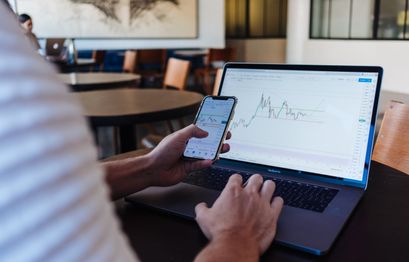If you’ve looked at forex trading and thought it might be an excellent opportunity to grow your wealth, you’re right. But forex trading is not exactly the most hassle-free way to make money, so if you’ve been planning to start your journey as a forex trader, there are many things you need to start learning about.
To become a successful trader, you need to get familiar with the market, read guides that will help you understand the jargon, always keep yourself informed of the changes that may happen on the market, and find a strategy that works best for your trading style.
To help you out, we did our research and found out what experienced traders wish they knew when they first ventured into thins journey. We put them all together and came up with this guide to help you learn from others’ mistakes.
The forex market is nothing like the other financial markets
Stocks, futures, bonds, options, and currencies are all assets that are being traded on a financial market. But that’s about it for similarities between the forex market and other financial markets. When you trade forex, it does not happen in a traditionally regulated market, controlled by a central governmental body. It is the largest, most liquid financial market in the world, meaning it takes more than one entity to rule it.
The forex market is open 24 hours a day, 5 days a week, and is supervised by several regulatory bodies around the globe. When you trade forex, there is little to no limit on the size of your position, as compared to futures, for example.
At first, this type of market may seem like a little turbulent, especially for those used to trade stocks. However, the forex market provides an abundance of opportunities to trade, grow your wealth, and learn a thing or two about finance. Its size, liquidity, and scope make it the most accessible financial market in the world, with lots of opportunities to find new trading instruments with fast learning curves.
Educating yourself is paramount
If you want to trade forex successfully, then you need to get proper forex education. While there is no Trading University you can go to, there is plenty of information you can find online. Take your time to read and learn as much as you can before your first couple of trades so that you at least know what to expect.
Start by learning the basic terminology, such as margin, leverage, pip, and spread. Then, research forex trading styles and choose one that seems the most approachable (we’ll talk more about this in a bit). Many beginner traders start with day trading, but that’s not a rule. If you find swing trading is more your style, then go for it.
The forex market can be influenced by a number of factors, including political, social, and economic news, so make sure you stay up to date with what’s happening around the globe and observe how these events are influencing the market.
Ultimately, the only thing that can really teach you how to trade forex is experience. So, after you’ve done your research, start with a demo account and try to apply the things you have learned.
Choose a trading style that suits your needs and goals
You probably started trading forex with a financial goal in mind. Be it because you want to grow your wealth, make money for a new car or house, or because you want to save for retirement, each goal, as well as trading personality, suits a different trading style.
The most common forex trading styles are:
Scalper trading: scalper traders focus on holding positions for short timeframes (a few seconds or minutes), opening and closing many positions during one day, aiming for small but frequent gains.
Day trading: while they are also fast-paced traders, day traders hold positions usually by the end of the day.
Swing trading: this involves holding a trade for more than one day, but usually less than a couple of weeks.
Position trading: position traders hold onto trades for several weeks, months, or sometimes even years, focusing on long-term price fluctuations.
Algorithmic trading: these traders rely on computer analysis, developing algorithms that help them anticipate how prices are moving.
Get familiar with the currencies you plan to trade
When you trade forex, you trade currency pairs, in which currencies move against each other, but not all currency pairs move the same. This is why it is essential to choose which currency pairs you wish to trade and learn as much as you can about them. This will help you anticipate the market, which is ultimately what trading is all about, and make more educated decisions.
Often, beginner traders tend to jump in and trade everything that seems to be moving. This leads to high leverage and random trading, which ultimately ends up costing you big money. But if you take the time to observe and understand why and how currencies move, then you get a much better chance of success. Pick a few currencies and focus on them, and only after you are comfortable trading those, you can move to others.
Switch your demo account to a micro account
After you spent some time playing around with your demo account, trying out different trading approaches, and getting familiar with the trading platform, it’s time to start opening a real account. While demo accounts are fun to use as a learning tool, you won’t get the same experience of knowing there is real money on the line, and any move you make may affect your balance.
To get a better perspective on how it feels to actually win or lose capital, open a micro forex account, or an account with variable trade size. This will allow you to actually see if you can manage the pressure of knowing there is real money on the line. This kind of pressure is what makes some people abandon trading or realize they still have more things to learn before becoming a trader.












